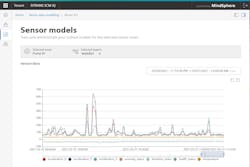Successfully increasing energy efficiency in the process industries
Responsibly dealing with energy in industry has never been more crucial and urgent than it is today. Companies are facing major challenges regarding dynamic energy price levels and managing the committed energy change, as well reaching the ambitious decarbonization goals in principle. Fact is that the production sector is responsible for about 20% of global CO2 emissions and about 37% of global energy consumption. As one of the main contributors to global greenhouse gas emissions, the process industries are especially challenged — and the pressure to act now and drive energy efficiency is growing daily.
A key strategy for saving energy and resources as well making these energy intensive industries lower in emissions is to digitalize and automate the processes. There is almost no way around to manage sustainability holistically and effectively in new (Greenfield) and in existing process plants (Brownfield). Let’s take a look at several concrete use cases and see how the challenges can already be met today with reasonable effort by innovate digitalization solutions.
Prevent unpredicted mechanical component downtime
When energy-critical plant components and aggregates that are no longer working properly aren’t detected promptly, it can lead to problems like a significant waste of energy and production losses. Using smart clamp-on sensors in combination with artificial intelligence allow imminent failures of mechanical components like pumps, gearboxes or compressors to be detected, which enables operators to take timely countermeasures. Companies benefit from preventing unpredicted downtimes of plant areas or of the complete plant, while using energy efficiently, and saving resources, waste and costs.
Monitoring valves and positioners
Traditional maintenance strategies at fixed intervals or in case of failure, do not necessarily contribute to energy saving. An AI-empowered plant asset management solution in combination with smart positioners helps by intelligently monitoring the proper condition of valves. This supports predictive maintenance in detecting patterns in their operations, and enable the highest possible plant reliability, transparency, and efficiency. This results in less energy waste thanks to optimized maintenance cycles that extend the operation and replacement intervals of the valves.
Using positioners with less air consumption
Many process plants suffer from high energy costs due to the high compressed-air consumption of conventional positioners used for controlling valves. In comparison, the smart ones use air only when required. With the right group of positioners, plant operators may save up to 95% in energy consumption compared with conventional ones — which helps build an energy-efficient plant process.
Optimized operations of water networks
The efficient operation of pumps is one of the biggest challenges in the operation of water networks due to different energy tariffs. Since pumps are the largest energy consumer in the network they should be operated in a smooth and efficient way. Intelligent software algorithms take all important parameters such as tank level, energy prices, consumer demands or pump availabilities into consideration and calculates a schedule for the most efficient operation ensuring water supply at all times. Assisting in daily operation by continuously calculating schedules in individually set intervals or supporting in maintenance and operation planning with manual started scenarios and calculations.
Efficiently monitored heat exchangers
Heat exchangers are energy-intensive assets in plants that could waste enormous amounts of energy if not maintained on schedule. When they’re integrated into the central asset management solution, their energy-saving potential can be significantly increased, and their maintenance management can be designed more effectively.
Predictive maintenance of all plant assets
Every unplanned asset downtime or even the whole plant can cause increased energy consumption due to cleaning or ramping down and restarting the plant. Artificial intelligence-empowered solutions support predictive maintenance of all smart assets and therefore significantly reduce energy consumption.
Remote control and measurement
Intelligent sensors and components can be monitored remotely using an appropriate digital software-based solution. This allows operators to monitor and service widely distributed measuring points in plants using the existing infrastructure and applications. This reduces travel to the distributed measuring point, which decreases CO2 emissions and can prevent waste in the form of lost energy or raw materials.
Using digital process twin technology
Using a comprehensive digital twin holds great potential for increasing energy-efficient production in the process industry. Plant operators can create closed loops between the digital and real worlds across the entire value chain and develop actionable insights and informed decisions that can also be used for holistic energy management. Digital process twin technology that combine plant data with real-life process models offer a new level of decision support and enable a site-wide 2% to 8% reduction in emissions and energy costs, a greener plant, and more flexible operations.
Holistic energy management solutions
The process industry needs to keep a constant eye on energy consumption. This requires enterprise-wide energy management solutions, from field-level energy data recording to company-wide energy analyses that identify major energy consumers and take appropriate measures. Implemented efficiency measures can be continuously evaluated and energy procurement can be optimized so that energy efficiency across plants and locations is comparable.
These examples show how data-based transparency and new insights into processes and plant components can significantly increase the potential for a more sustainable process industry. Plant operators can make informed decisions and derive targeted measures that decisively improve energy efficiency.
Hermann Gradl is Head of Marketing Strategy for Process Automation at Siemens



